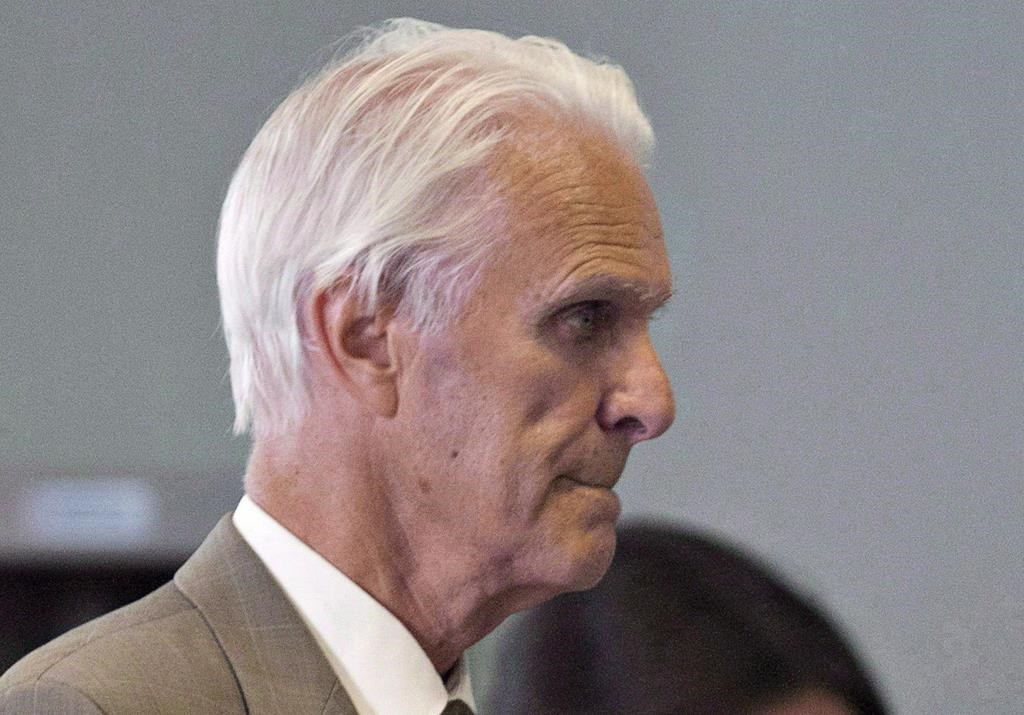Prosecutors filed an appeal on Thursday in an attempt to have a former Quebec judge stand trial again in connection with the murder of his wife.

Jacques Delisle walked out of the Quebec City courthouse a free man on April 8 after Quebec Superior Court Justice Jean-François Emond granted him a stay of proceedings. He spent nine years in prison before he was freed last year, after federal Justice Minister David Lametti ordered a new trial.
Emond agreed with Delisle’s lawyers, who argued that a retrial would be impossible because a Crown expert had made serious errors in a pathology report. They also said there had been unreasonable delays in the case.
The Crown, however, said in its filing that Emond’s decision to stay the case hampers the fundamental process of seeking truth, adding that the ruling “is likely to compromise public confidence in the administration of justice.”
READ MORE: 7 face charges for sex crimes involving children: Quebec City police
Prosecutors François Godin and Julien Beauchamp-Laliberte argued that Emond erred by finding fault on the part of the state and concluding — before a jury has seen the evidence — that a future trial would be unfair.
A former judge on the Quebec Court of Appeal, Delisle, now 86, was found guilty of first-degree murder in the death of his wife, Marie Nicole Rainville, and was sentenced to life in prison with no chance of parole for 25 years. Delisle said Rainville had taken her own life, while the Crown had argued the ex-magistrate had shot her in the head.
- Canada’s most wanted list: Toronto suspect in fatal shooting at No. 1
- Gas station clerk stabbed several times during violent attack at Ultramar in Montreal
- Man acquitted in Tina Fontaine murder found dead, says her aunt
- Canadians should expect politicians to support right to bail, Virani’s office says
Emond’s 99-page ruling cited the “gross negligence” of a pathologist who failed to photograph the brain or take samples that would’ve shown traces of the bullet that killed her.
“The unavailability of this evidence is so damaging that the applicant’s right to make full answer and defence is violated,” the judge wrote.
A major part of the case revolved around the angle of entry of the bullet, which could confirm or infer a suicide. Questions about the reliability of this evidence allowed for a new trial to be ordered.
But the Crown argues that despite the trajectory of the bullet, murder remains a possible verdict for a jury given the entirety of the evidence against the judge.
Delisle’s lawyer, Maxime Roy, said in an email Thursday he had no comment on the appeal filed by the prosecution.













Comments